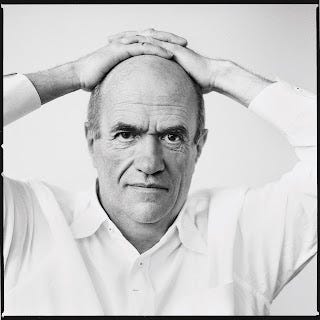Colm Tóibín: NPVIII: Meet the Contributor

This week's New Poetries blog comes from contributor Colm Tóibín. Here you can read his introductory commentary from the anthology, and read his poem 'December', which you can also watch Colm reading below.
*
I write poems about things that I remember or notice or feel. Like many other people, I wrote poems in my teens and then I stopped. In my twenties, I wrote some short-stories, but that also petered out. I worked first as a journalist and then I wrote novels, even though, when I had ambitions as a poet, I despised the sort of tricks a novelist has to play to make the reader believe in a character or a scene. A novel has so much padding for the sake of verisimilitude; the pay-off comes, if you are lucky, in moments of pure illumination.
Slowly, I became interested in the relationship between plausibility and pay-off and I tried to balance them in novels as much as I could.
In 2003, I finished a novel called ‘The Master’. It had taken me four solid years of work, writing the first draft in longhand and then doing much revision and erasing. When it was over, it was a great relief.
Without the novel to work on, however, I was like a swimmer without water. I had no idea for a new novel.
Unexpectedly, I began to write short-stories and poems. I know how the earliest short-story came: I was in a hotel room in Bucharest. I wrote the first sentences on the notepad beside the telephone. The story came not as an idea, or a plot, but a tone, a melody, and a set of images. Writing that story was like singing in key, adding grace notes and flourishes, and allowing the song itself almost to dictate its own shape. My job was to work as though I were finding something that was already there.
I don’t have an exact memory of how and when the first poem came, but it was in the same short period. The poems began with an image and a phrase, and then the words did the work, moving the poem ahead. My job was to hold the poem back, restrain it, concentrate on the image and force the words to do the same.
It was a battle, and the method I used was important.
I wrote a first draft on a word processor, tentatively and then decisively letting the form emerge. I would go back to it a few times a day, adding and cutting. It was essential that I kept no copy at all of what an earlier draft had looked like. There was always only one draft. I worked as though I were painting a picture. If something was erased, it was gone for good. Drafting was like action. Quick ruthless decisions each time.
If I needed help, I went back in my mind to the original image and tried to work out if it was true, or if it was a way of concealing something more elusive, harder to face.
This process would go on until I could make no more changes. Then the poem was done. But a few times, as in the poem ‘December’, I thought I was finished and left the poem for years. When I came back to it, I could see the evasions, the failures, the laziness. I re-wrote the poem.
In the first years after ‘The Master’, I finished quite a few poems. Then, there were one or two poems a year. They always came when I did not expect them. Recently, I have written more. Part of the excitement is the feeling that, just as the impulse to write poems left me when I was twenty, it could depart again. These could be the last lines I will ever write, or ever cut. And, anyway, maybe I am too old.
*
December
I wondered that December day
What I would miss. December light:
The air liquid and grey
An hour before the ambiguous hour.
Time when the mind’s half-filled with dreams.
The gift of pure dazzling consciousness.
Some books. And music, not to be heard again.
The touch of flesh, your hand.
When I first heard talk of death
I was eight, just in from school,
And my mother, staring in the mirror, said
That my father would die, and soon he did.
From then I did not put my trust
In anything much. When I summon up the names
Of ones I love, for example, I recoil
At having to whisper what has remained unsaid.
*
New Poetries VIII is published in January 2021. Follow the Facebook page to keep up to date, and watch the contributors read their poems on YouTube.




